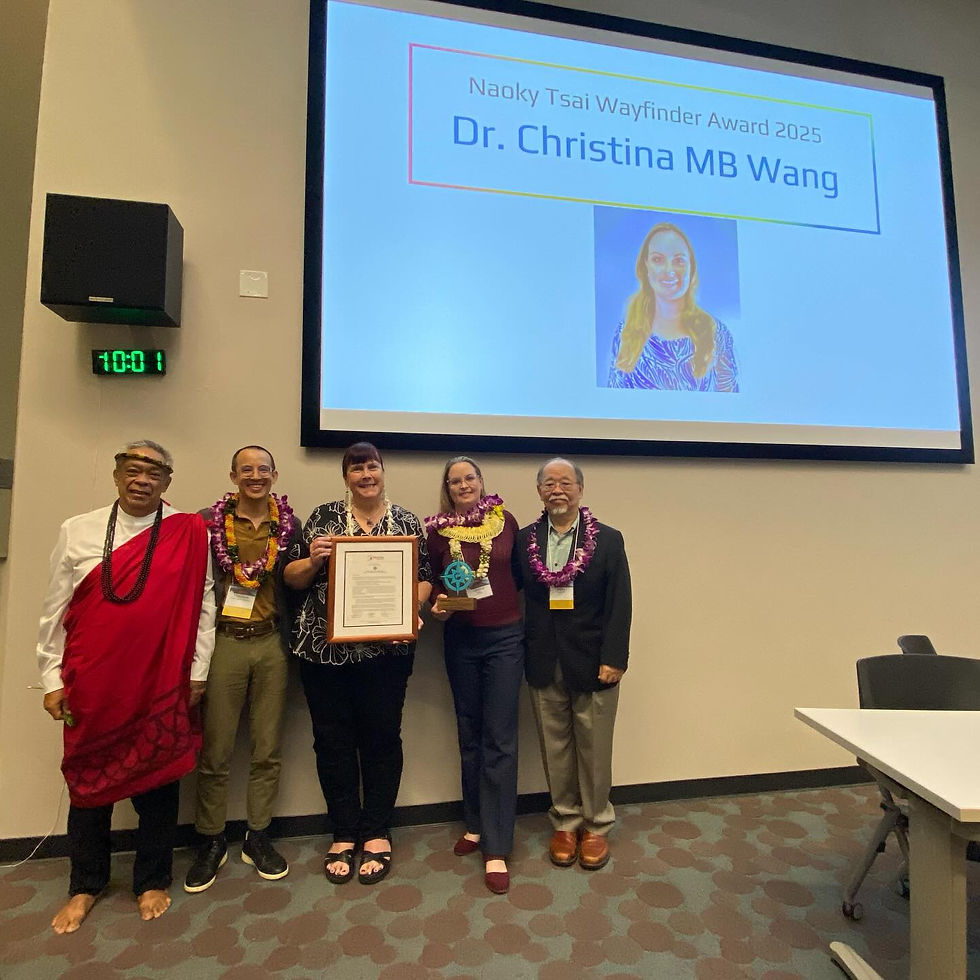Celebrate Transgender Day of Visibility (TDOV)
- HHHRC
- Mar 31, 2022
- 2 min read
Tonight from 6-8PM, HHHRC's Kua῾ana Project will host “Stories of Strength,” a virtual event that will include storytelling from Hawaii’s trans community across generations. Please click here to register for a Zoom link to the event.
Among those who will be featured: Charmaine Lee Anderson, founder of the Imperial Sovereign Court of Hawaii, a nonprofit community service organization that serves the LGBTQIA community; Leikia Williams Parker, local showgirl and seasoned entertainer of 30 years; Maddison Moliga, LGB&T Youth Houseless Case Manager at HHHRC; and Dylan Akemi, trans male community leader and member of the Imperial Sovereign Court of Hawai῾i.
TDOV was created by Michigan trans advocate Rachel Crandall in 2009 as a response to a majority of stories in the media focusing on anti-trans violence. Instead, she hoped that a day could celebrate the lives of transgender people and empower them to live authentically.

On March 29, HHHRC and the Kua῾ana Project hosted a sign waving event at the state capitol to celebrate TDOV. Among the attendees were State Representatives Adrian Tam, Amy Perruso, Jeanne Kapela, and Jackson Sayama and State Senators Chris Lee and Laura Acasio. Rep. Tam and Sen. Lee are co-chairs of the newly formed Equality Caucus, which has offered a number of bills addressing the needs of sexual and gender minorities.
“We’ve seen a lot of progress toward equality in recent years, but social stigma and structural barriers still inhibit trans people from self-acceptance and living their best life. While we are happy to contribute the insights from our lived experience to the public discussion, the most important work comes from assisting people in need and building a network of support,” said Kua῾ana Project Manager Maddalynn “Maddie” Sesepasara, a Samoan transwoman who also serves as Co-Chair of the State Department of Health’s Sexual and Gender Minority Workgroup. Kua῾ana Project will also be featured in a forthcoming exhibition at Bishop Museum on the important role of māhū in Native Hawaiian culture.
Last year the White House offered the first presidential proclamation recognizing TDOV. The proclamation noted that transgender people “still face systemic barriers to freedom and equality,” including “discrimination in employment, housing, health care, and public accommodations.” The proclamation endorsed the passage of the Equality Act to “deliver legal protections for LGBTQ+ Americans in our housing, education, public services, and lending systems.”










Comments